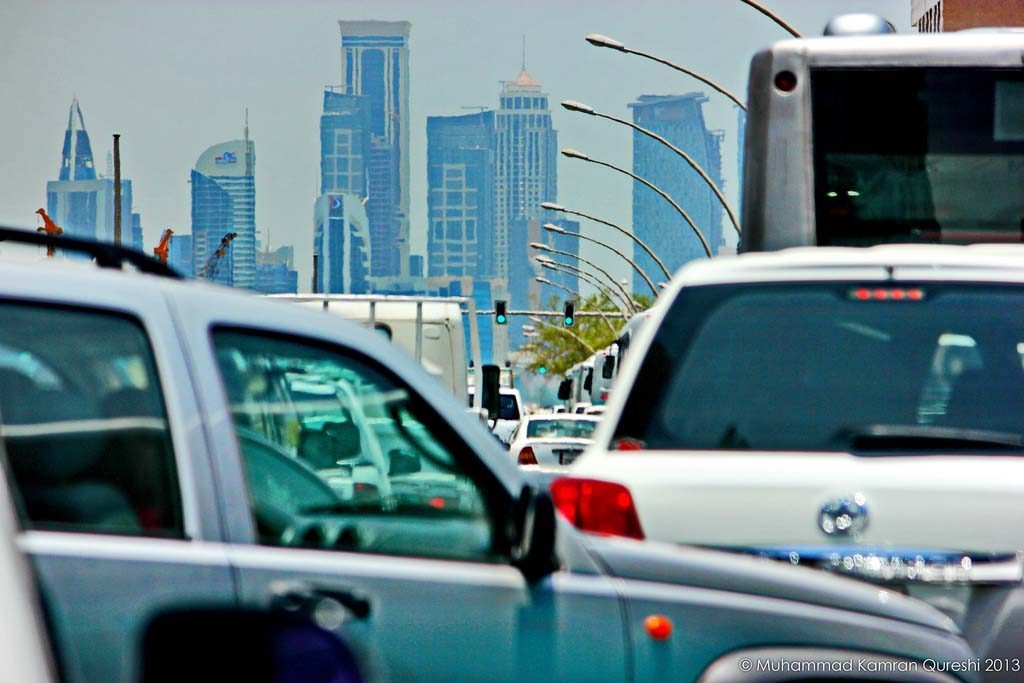
Motorists in Qatar will soon face stricter repercussions for certain traffic violations after the nation’s Emir signed off on amendments to the country’s traffic law yesterday.
Law No. 16 of 2015, which updates the existing traffic law No. 19 of 2007, doubles fines for illegally overtaking cars from the right lane and parking in spaces reserved for people with special needs.
Effective three months after it is published in the Ministry of Justice’s Official Gazette, the updated law is expected to come into force late this year or early 2016.
What’s changed
Previously, motorists caught wrongly overtaking on the right and illegally parking in spots for disabled people faced fines of QR500. They could also be given three points on their license.
A driver who racks up 14 points will have their license suspended, the Ministry of Interior has previously said.
Under the updated law, the fines for these offenses have been increased to QR1,000, while repeat offenders could face a jail term, the Peninsula reports.
QNA announced the Emir’s ratification of the amended law yesterday, but did not give any details of the changes. However, the full text of the new law was published in full in Al Sharq.

Penalties for speeding will be imposed depending on how far over the prescribed speed limit the driver is found to be.
Motorists who exceed the limit by up to 30kph face one point, while drivers speeding in excess of 40, 50 and 60kph over the limit will incur two, three or four points respectively, according to Qatar Tribune.
The fines for speeding remain the same, with motorists facing QR500 citations plus an additional QR100 for every 10kph they are above the speed limit, up to a maximum of QR1,000.
Additionally, under the provisions of the updated law, drivers whose cars have been impounded by the Ministry of Interior’s Traffic Department for illegal maneuvers must claim their vehicles within three months, or they will be put up for public auction.
Previously, they had six months to pay off their fines and the costs accrued and reclaim their vehicle, the Peninsula adds.
The amended law also states that vehicles with sale advertisements that are parked in a public area without prior approval could be seized. Enforcement of this violation will become the sole responsibility of the traffic department, where previously the municipality also played a role.
Enforcement issues
With thousands of new vehicles joining Qatar’s roads each month, managing the state’s traffic is a key challenge for the authorities.
Several measures have been rolled out to catch and ticket badly behaved drivers, many of them involving the use of technology.

However, with the number of traffic violations falling while the road accident figures soar, questions remain about the effectiveness of monitoring motorists.
Official figures for violations recorded this June showed that there were 165,000 citations – down nearly 24 percent from last June – and fewer tickets were issued for nearly every category of violation.
Meanwhile, the number of vehicle accidents for the same months rose sharply, from 29,000 last June to 44,000 in June this year.
Last June, traffic police in unmarked cars started patrolling hot spots including the Al Shamal Road and Expressway, Al Waab Street and C-Ring Road to encourage more drivers to follow the rules of the road.
This was extended to other problem areas in Doha earlier this year, with the vehicles equipped cars with cameras to record violations such as using mobile phones while driving, not buckling up, throwing trash from cars and seating children under the age of 10 years old in the front seats of the car.

And last August, in response to a rising number of complaints about illegally parked cars and as Doha faces a parking crunch, the MOI began towing the errant vehicles.
Meanwhile, the traffic department has also been cracking down on illegal overtaking in the right “slow lane,” at intersections and roundabouts, and warned drivers that those caught would have their vehicles towed away.
Passing on the right is a common practice, but can be dangerous, as motorists who try to queue skip must cut in front of other cars in junctions and roundabouts at the last minute.
Finally, more recently, traffic officials have said they are upgrading the technology in cameras installed at traffic intersections to detect vehicles that tail-gate as well as those turning left while in go-straight lanes, in addition to speeding offenses.
Thoughts?







